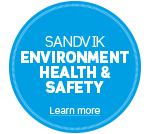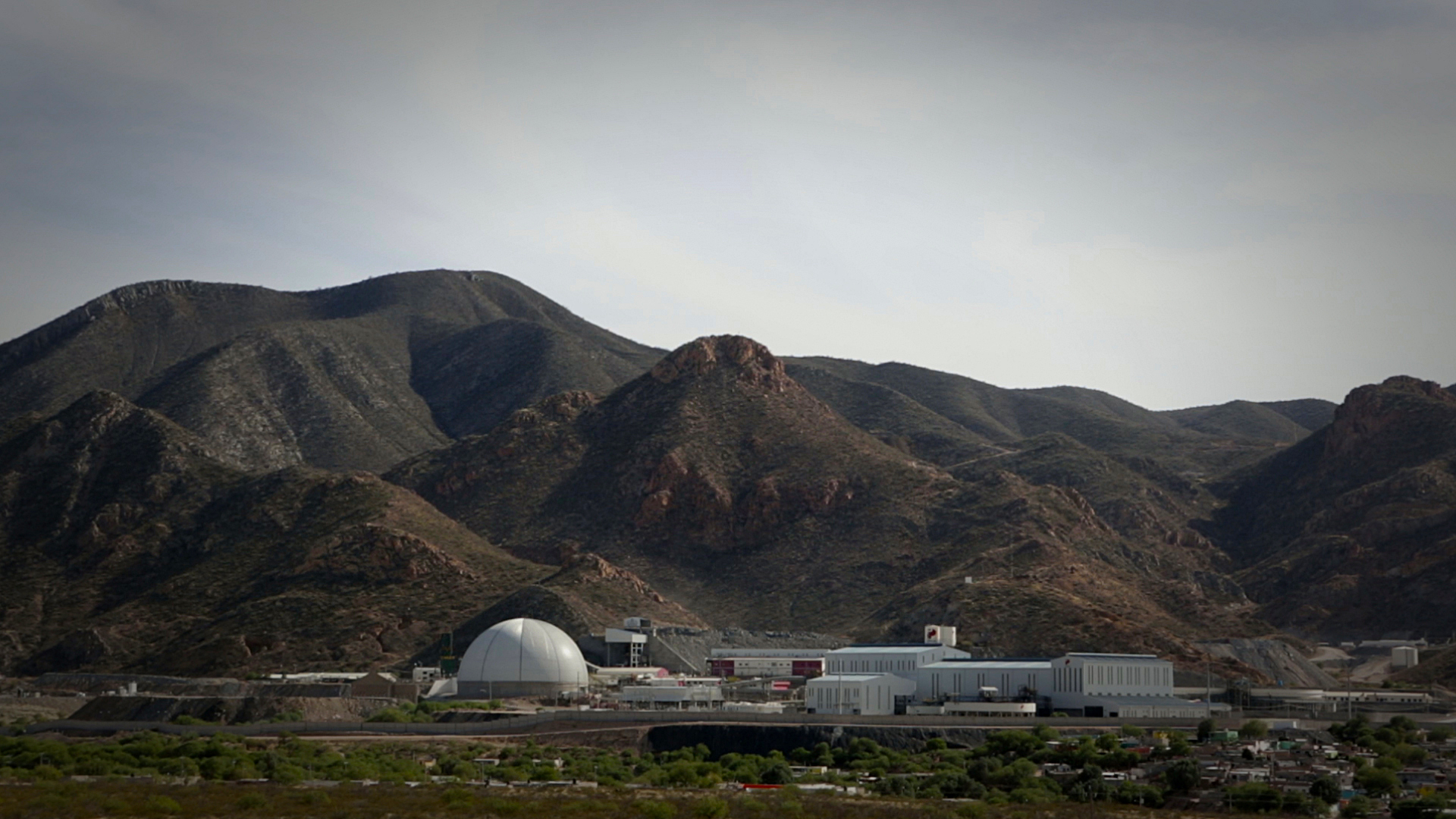Mining in harmony
In northern Mexico, Industrias Peñoles is committed to running its Velardeña mine in harmony with both the local community and the environment.
With a town on its doorstep, the Velardeña mine run by Industrias Peñoles has implemented cutting-edge technologies to preserve the area’s water supply and reduce air pollution. It’s part of the Mexican mining company’s commitment to extracting needed resources from the earth in a way that minimizes the impact on sensitive habitats.
“We’re in harmony with the community, in harmony with the environment,” says Hugo Alberto Palacios Martinez, who oversees the mine’s operations for Peñoles. “Mining contributes to human progress. We can mine in congruity with the environment and the people around us.”
About Industrias Peñoles
Peñoles, a Mexican mining and chemicals group owned by the business conglomerate Grupo Bal, is the world’s largest producer of refined silver and metallic bismuth. It’s also a major producer of zinc and sodium sulphate and a leading regional producer of gold and silver.
Its operations include nine underground mines, two open pit mines and the refining complex Met-Mex Peñoles in the Mexican state of Coahuila. The Mexico City-based company was founded in 1887. It started operations at the Velardeña mine in May 2013, and the site has quickly become the country’s leading producer of zinc.
The decision to use Sandvik equipment – including underground trucks, loaders, mining jumbos and rock support drills – along with the supplier’s technicians to service and maintain that machinery reflects Peñoles’s decision to run its operations in an environmentally sustainable way.
Because the Sandvik trucks haul up to twice as much ore as traditional trucks, Peñoles can meet its daily goals with fewer vehicles.
“With fewer trucks, there are fewer emissions in the mine, less traffic and fewer problems going in and out,” says Daniel Calderon, contract supervisor for Sandvik Mining. “This is the advantage we have. Fewer trucks, more cargo, more capacity.”
On top of that is Sandvik preventive maintenance, says Johanna Leticia Ibarra Vallejo, Peñoles’s coordinator of environment, health and safety at Velardeña. Keeping the trucks in good operating condition means they run cleaner and do not pollute unnecessarily. If, for example, oil leaks from the trucks, it can contaminate the soil. Having mechanics on hand who check the equipment constantly prevents that from happening.
While that work goes on underground, Peñoles has built a massive dome above ground to enclose the mine’s stockpile in a structure that keeps crushed ore dust from polluting the air. It’s the first time the company has put such a dome to use, says Ibarra Vallejo, and federal regulators have already taken note, given the possibility of using the dome to improve air quality problems and reduce visible air pollution in additional applications.
Water guardians
Besides the efforts to cut down on dust, some of the mining company’s most significant accomplishments have focused on preserving water, a precious resource in northern Mexico.
Velardeña does not send wastewater into a nearby arroyo; instead, using water treatment plants, it reuses and recycles the water to meet the needs of the mine. “All the water is sent back into the process to avoid severe extraction of groundwater,” Ibarra Vallejo says.
While Peñoles has already taken steps to reduce its environmental impact, it continues to improve those processes on an ongoing basis. When it comes to water it’s also important that as little as possible is lost to evaporation.
Community care
Meanwhile, in the mine, Peñoles and Sandvik are working together to reduce the amount of hazardous waste left over from mining equipment by finding ways to recycle as much as possible, Ibarra Vallejo says.
“If we’re handling 10 drums of waste oil, we want to reduce that to eight, or five, to avoid the concentration of hazardous waste,” she says.
Part of Peñoles’s aim is to extract essential resources in a way that helps communities in the vicinity of the mines. In Velardeña, a small town in a part of Mexico that’s far from the amenities of large cities, the company’s presence has already brought about improvements.
Peñoles has helped provide access to drinking water, improved schools and built athletic fields, Palacios Martinez says. While working with locals, the idea is to empower those in the community through economic opportunities.
“The idea is that, at a certain point, the people and community become self-sufficient,” Palacios Martinez says. “We’re paternalistic in this way. The company doesn’t want to replace the state government in helping the community. Rather it wants to work together so the community can continue on independently of the mine.”
Text: Dale Quinn/Photo:Joshua Drake

/https%3A%2F%2Fsolidground.sandvik%2Fwp-content%2Fuploads%2F2014%2F06%2FSandvik-1311.jpg)
/https%3A%2F%2Fsolidground.sandvik%2Fwp-content%2Fuploads%2F2014%2F06%2FSandvik-145.jpg)
/https%3A%2F%2Fsolidground.sandvik%2Fwp-content%2Fuploads%2F2014%2F06%2FSandvik-108.jpg)
/https%3A%2F%2Fsolidground.sandvik%2Fwp-content%2Fuploads%2F2014%2F06%2FSandvik-20.jpg)
/https%3A%2F%2Fsolidground.sandvik%2Fwp-content%2Fuploads%2F2014%2F06%2FSandvik-1141.jpg)


/https%3A%2F%2Fsolidground.sandvik%2Fwp-content%2Fuploads%2F2024%2F12%2FFasloc-SF-Styren-Free-alt.jpg)
/https%3A%2F%2Fsolidground.sandvik%2Fwp-content%2Fuploads%2F2023%2F01%2FBackground-2-e1674718920429.jpg)
/https%3A%2F%2Fsolidground.sandvik%2Fwp-content%2Fuploads%2F2023%2F01%2FSmart-parts_2_1600x750.jpg)
/https%3A%2F%2Fsolidground.sandvik%2Fwp-content%2Fuploads%2F2021%2F10%2FDSC_2445_B_1600x570.jpg)
/https%3A%2F%2Fsolidground.sandvik%2Fwp-content%2Fuploads%2F2021%2F09%2FRM1_1600x570.jpg)
/https%3A%2F%2Fsolidground.sandvik%2Fwp-content%2Fuploads%2F2020%2F06%2FMining-Machine-Exploded_1600x570.jpg)
/https%3A%2F%2Fsolidground.sandvik%2Fwp-content%2Fuploads%2F2019%2F10%2F47246191292_1600x570.jpg)
/https%3A%2F%2Fsolidground.sandvik%2Fwp-content%2Fuploads%2F2019%2F10%2FHenrik_Ager_foto_oskar_omne0015_1600x570.jpg)
/https%3A%2F%2Fsolidground.sandvik%2Fwp-content%2Fuploads%2F2019%2F10%2FGearingUp_1600x570.jpg)
/https%3A%2F%2Fsolidground.sandvik%2Fwp-content%2Fuploads%2F2020%2F01%2FNAPO190528AL_020_1600x570.jpg)
/https%3A%2F%2Fsolidground.sandvik%2Fwp-content%2Fuploads%2F2019%2F08%2FBasic_1600x570-Greenwood-02.jpg)
/https%3A%2F%2Fsolidground.sandvik%2Fwp-content%2Fuploads%2F2019%2F04%2FIll-Sandvik-SustainMining_part2.jpg)